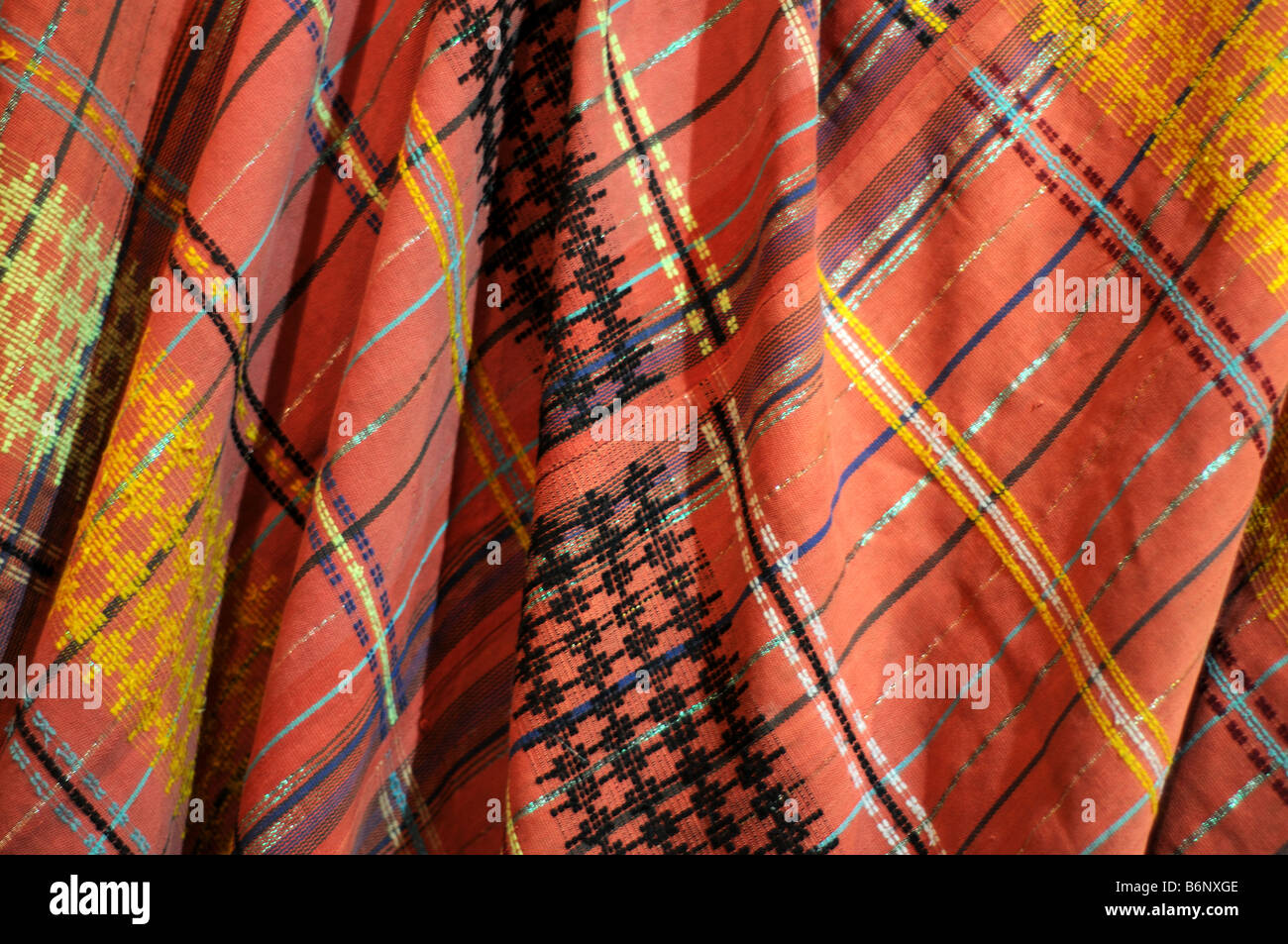1. Aso-Oke Weaving – Yoruba Land (Southwest Nigeria)
Aso-Oke (literally, “top cloth”) is a traditional woven fabric worn by the Yoruba people during important ceremonies like weddings, chieftaincy titles, and festivals. Made from cotton and silk threads, it features striking patterns and bold colours. The cloth is often handwoven on narrow looms in towns like Iseyin and Ogbomosho in Oyo State.
Where to Find It:
Nigeria, a nation of over 250 ethnic groups, boasts one of Africa’s richest tapestries of traditional arts and crafts. Each region, tribe, and community offers its own unique contributions to a heritage that spans centuries a vibrant story told through weaving, carving, pottery, metalwork, and beadmaking. These crafts are more than objects; they are living expressions of identity, belief, and history, passed from generation to generation through the skilled hands of master artisans.
- Iseyin, Oyo State – Renowned for master weavers who still use traditional methods.
- Lagos Balogun Market – For a modern selection of handwoven Aso-Oke and ready-to-wear styles.
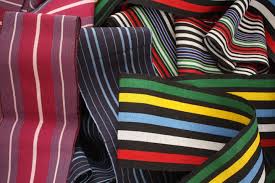
2. Nok Terracotta – Middle Belt (Kaduna, Niger, Plateau States)
Dating back to 1000 BC, Nok terracotta sculptures are some of the oldest known artifacts in West Africa. These mysterious figures, often with elaborate hairstyles and expressive features, showcase the early mastery of sculpting and the rich spiritual traditions of the Nok culture.

Where to Find It:
- National Museum, Lagos or Jos – See preserved and restored Nok pieces.
- Private galleries in Abuja and Jos – Some display Nok-inspired works by contemporary artists.
3. Brass and Bronze Casting – Benin City (Edo State)
The Benin Kingdom is famed for its intricate brass and bronze castings, which once adorned the royal palace. These artworks depict royal figures, deities, and historical scenes, moulded using the lost-wax technique that has endured since the 13th century.
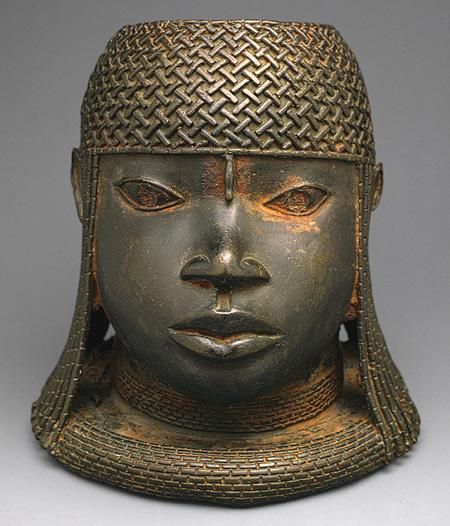
Where to Find It:
- Igun Street, Benin City – A UNESCO-recognized heritage site where traditional guilds still practice this ancient art.
- National Museum, Benin City – A trove of historical Benin bronzes.
4. Beadwork – Igbo and Tiv Cultures (Southeast and Northcentral Nigeria)
Beads in Nigerian culture are far more than decoration; they signify royalty, status, and spiritual protection. The Igbo people are known for coral bead regalia worn by chiefs and brides, while the Tiv weave colourful beaded crowns and ornaments as part of ceremonial wear.
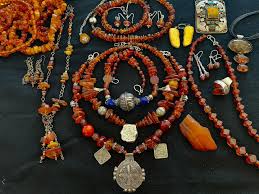
Where to Find It:
- Onitsha Market, Anambra State – A hub for handmade coral beads and Igbo ceremonial regalia.
- Makurdi, Benue State – Home to Tiv artisans who incorporate beads into traditional dance attire.
5. Pottery – Gwari, Nupe, and Ibibio Traditions
Pottery remains a vital domestic craft across Nigeria. The Gwari people of Niger State produce smooth, burnished pots for cooking and rituals, while the Ibibio of Akwa Ibom are known for their symbolic pottery used in cultural rites.
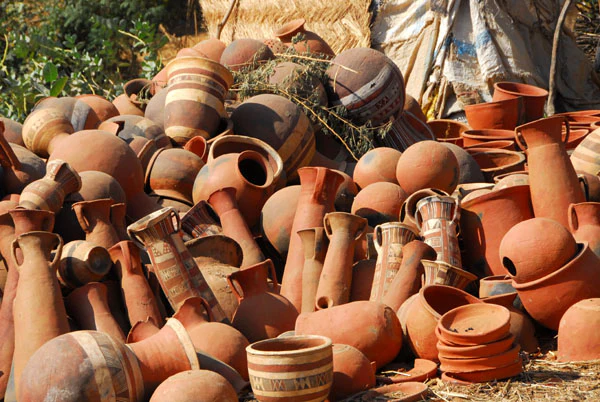
Where to Find It:
- Mararaba and Suleja, Niger State – Visit live pottery workshops.
- National Craft Centres in Abuja or Uyo – For both traditional and contemporary clay art.
6. Calabash Carving – Fulani and Hausa Cultures (Northern Nigeria)
Used for carrying water, food, and as musical instruments, calabashes (gourds) are carved and etched with geometric patterns and symbolic motifs. In Fulani culture, they are also beautifully dyed and used in courtship rituals.
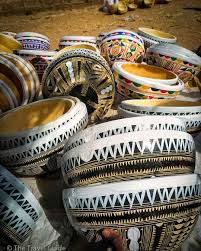
Where to Find It:
- Kano and Katsina Markets – Explore intricate designs and buy directly from artisans.
- Arewa House, Kaduna – A cultural centre showcasing Hausa Fulani craft heritage.
Preserving the Craft: Where Heritage Meets Modern Expression
Nigeria’s traditional crafts are increasingly finding new life in fashion, design, and contemporary art. From runway collections that incorporate Aso-Oke to sculptors blending Nok forms with modern themes, young artists are preserving while innovating.
Where to Experience It All:
- Nike Art Gallery (Lagos, Abuja, Osogbo) – A celebration of Nigeria’s traditional and contemporary arts.
- National Council for Arts and Culture (NCAC) – Hosts exhibitions, festivals, and supports artisan networks.
Final Thoughts
Traditional Nigerian crafts are more than beautiful creations they are cultural archives in tangible form. Whether it’s the rhythmic weave of Aso-Oke or the solemn elegance of Benin bronzes, each piece holds a story, a spirit, and a connection to the past. For travellers, collectors, or simply curious minds, exploring these crafts is a journey into the soul of Nigeria.

